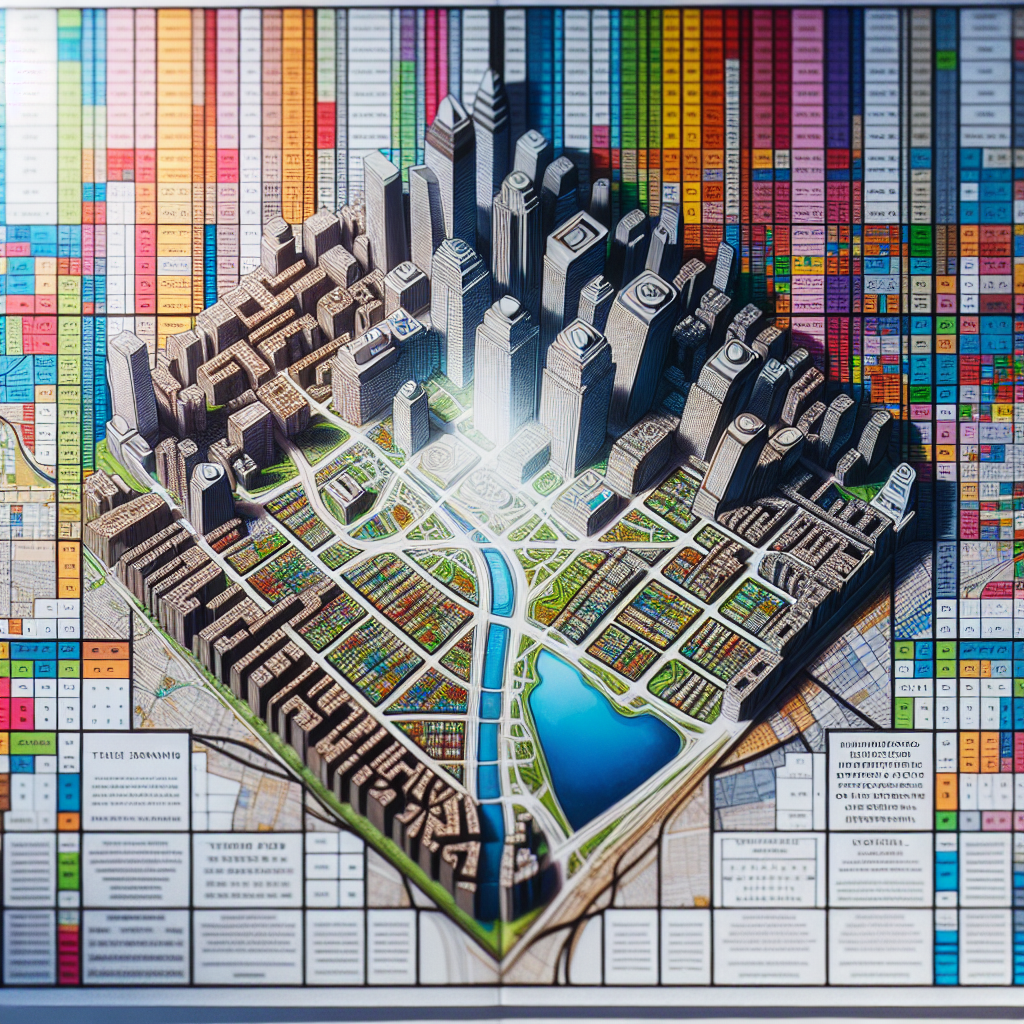Are you an aspiring entrepreneur looking to start a cannabis business in Washington, D.C.? If so, understanding the complex world of zoning regulations is crucial for your success. With the growing popularity of the cannabis industry, it is essential to navigate the legalities and restrictions surrounding this highly regulated business. In this article, we will provide you with expert tips and advice on how to navigate the intricate web of zoning regulations in Washington, D.C., ensuring a smooth and legal path to establishing your cannabis business.
Overview of Cannabis Regulations in Washington, D.C.
Washington, D.C. has taken steps to regulate the legal cannabis industry, allowing for the cultivation, distribution, and sale of cannabis products within certain guidelines. Understanding these regulations is crucial for anyone looking to start or operate a cannabis business in the nation’s capital.
Legalization of Cannabis in Washington, D.C.
In 2014, Initiative 71 was passed, allowing for the possession and cultivation of small amounts of cannabis for personal use in Washington, D.C. However, it did not provide a legal framework for the commercial sale and distribution of cannabis products. It wasn’t until years later, in 2017, that the Cannabis Regulation and Taxation Act was passed, establishing a licensing system for cannabis businesses in the city.
Role of Zoning Regulations in Cannabis Business Licensing
Zoning regulations play a vital role in determining where cannabis businesses can operate within Washington, D.C. These regulations are designed to minimize the potential negative impacts of cannabis businesses on surrounding neighborhoods and ensure the safe, responsible, and appropriate operation of these establishments.
Understanding the Zoning Classification
To navigate the zoning regulations effectively, it is crucial to understand the different zoning districts in Washington, D.C. Zoning districts determine the types of businesses that are allowed in specific areas. The city has several categories, including residential, commercial, mixed-use, and industrial districts. Each district has its own set of regulations regarding the types of activities permitted within its boundaries.
Different Zoning Districts in Washington, D.C.
Washington, D.C. has various zoning districts, each with its own regulations. Some common zoning districts that allow for the operation of cannabis businesses include Downtown (D) districts, Medium-Density Residential (R-5-A) districts, and Mixed-Use (MU) districts. However, it is crucial to research and identify the specific zoning district requirements for the desired location of a cannabis business.
Identifying Suitable Zoning Districts for Cannabis Businesses
When looking for suitable zoning districts for cannabis businesses, it is essential to consider factors such as proximity to residential areas, sensitive locations like schools or parks, and traffic patterns. Ensuring compliance with minimum distance requirements from these sensitive areas is crucial to meet zoning regulations. By carefully analyzing zoning maps and regulations, potential business owners can identify districts that allow for the operation of cannabis businesses.

Researching Zoning Regulations
Thorough research of zoning regulations is essential before starting a cannabis business in Washington, D.C. This includes accessing zoning maps and documents provided by the city’s Office of Zoning. These resources help potential business owners understand the specific requirements and restrictions associated with operating in different zoning districts.
Accessing Zoning Maps and Documents
The Office of Zoning provides online access to zoning maps and documents that outline the regulations for each district in Washington, D.C. These resources are a valuable tool for potential cannabis business owners to ensure they select a suitable location and comply with the zoning regulations.
Reviewing Zoning Code and Regulations
In addition to accessing zoning maps and documents, it is essential to review the zoning code and regulations applicable to the desired location. The zoning code provides detailed information on land use, building codes, setbacks, parking requirements, and other factors that play a crucial role in obtaining the necessary licenses and permits for a cannabis business.
Consulting with Zoning Professionals or Attorneys
Navigating zoning regulations can be complex, especially for individuals unfamiliar with the process. Seeking guidance from zoning professionals or attorneys experienced in cannabis regulations can be invaluable. These experts can provide insight into the specific requirements, help navigate the application process, and ensure compliance with all zoning regulations.
Compliance with Zoning Requirements
Compliance with zoning requirements is of utmost importance for cannabis businesses in Washington, D.C. Failing to meet these requirements can result in delays, fines, or even the revocation of licenses. Business owners must carefully adhere to the following zoning considerations.
Minimum Distance Requirements from Sensitive Areas
To maintain the desired balance between cannabis businesses and sensitive locations, such as schools, parks, and rehabilitation centers, Washington, D.C. has established minimum distance requirements. These requirements stipulate that cannabis businesses must be a certain distance away from these sensitive areas. Adhering to these distance requirements is crucial to stay compliant with zoning regulations.

Special Use Permits and Conditional Use Permits
In some instances, cannabis businesses may require special use permits or conditional use permits, depending on the specific regulations of the zoning district. These permits grant exceptions or additional allowances to operate despite certain restrictions. It is essential to carefully review the zoning regulations and consult with experts to determine if any special permits are required.
Parking and Traffic Planning Considerations
Parking and traffic planning considerations are crucial factors for cannabis businesses in Washington, D.C. Zoning regulations often require businesses to provide adequate parking for customers and employees. Additionally, businesses must consider the potential impact on traffic patterns in the surrounding area and formulate plans to minimize disruption.
Engaging with Local Community and Stakeholders
Building positive relationships with the local community and stakeholders is essential for the successful operation of a cannabis business in Washington, D.C. Engaging with the community helps address concerns, dispel myths, and foster trust.
Community Outreach and Education
Engaging in community outreach and education initiatives is an effective way to promote understanding and acceptance of cannabis businesses. This can include hosting informational sessions, participating in local events, and establishing partnerships with community organizations.
Addressing Concerns and Dispelling Myths
It is important to acknowledge and address concerns that community members may have regarding cannabis businesses. Proactively addressing these concerns, such as odor control, security measures, or the impact on property values, can help alleviate misconceptions and build trust.
Building Positive Relationships with Local Authorities
Establishing positive relationships with local authorities, such as the neighborhood advisory commission or community leaders, is vital. Engaging in open and transparent communication, attending public meetings, and seeking input from these stakeholders can help ensure the smooth operation of a cannabis business and foster goodwill within the community.

Navigating the Application Process
Obtaining the necessary licenses and permits for a cannabis business in Washington, D.C. involves navigating a comprehensive application process. Understanding the requirements and deadlines is crucial to increase the chances of success.
Understanding License Types and Eligibility
Washington, D.C. offers various license types for cannabis businesses, including cultivation, distribution, processing, and retail licenses. Understanding the requirements and restrictions associated with each license type is essential for choosing the right business model and ensuring eligibility.
Application Requirements and Deadlines
The application process for cannabis business licenses in Washington, D.C. involves submitting various documents and meeting specific deadlines. These requirements may include background checks, financial disclosures, security plans, business plans, and proof of compliance with zoning regulations. Adhering to the application requirements and deadlines is crucial to avoid delays or rejection.
Preparing Required Documents and Plans
To navigate the application process smoothly, potential business owners must carefully prepare and submit all required documents and plans. This may include creating comprehensive business plans, security plans, floor plans, and ensuring all necessary forms are completed accurately. Engaging design professionals and consultants experienced in cannabis business requirements can be highly beneficial in this process.
Managing Security and Compliance
Security is a top priority for cannabis businesses in Washington, D.C. Maintaining strict security measures and compliance with regulations is vital to ensure the safety of the business and its employees, as well as prevent diversion and unauthorized access.
Installing Adequate Security Systems
Cannabis businesses must install appropriate security systems, including alarms, video surveillance, secure storage, and access control measures. These security systems must meet the requirements outlined in the zoning regulations and adhere to the specific guidelines set forth by the city.

Complying with Security Requirements
Washington, D.C. has specific security requirements for cannabis businesses, including protocols for inventory tracking, surveillance footage retention, employee background checks, and alarm response procedures. Strict compliance with these security requirements is crucial to maintain the necessary licenses and permits.
Maintaining Strict Inventory and Recordkeeping
Accurate inventory tracking and recordkeeping are important aspects of running a compliant cannabis business. Maintaining strict inventory control and transparent recordkeeping methods not only ensures compliance but also helps with managing taxation, audits, and quality control.
Ensuring Safety and Environmental Considerations
Safety and environmental considerations are key factors in the operation of a cannabis business. Complying with safety standards and implementing environmentally friendly practices can help mitigate potential risks and minimize the impact on the surrounding community.
Meeting Fire Safety Standards
Cannabis businesses must adhere to fire safety standards outlined by Washington, D.C. regulations. This includes having adequate fire suppression systems, emergency exits, proper ventilation, and adherence to electrical and wiring codes. Regular inspections and maintenance are crucial to ensure ongoing compliance.
Proper Waste Management and Disposal
Proper waste management and disposal play a significant role in ensuring environmental sustainability and compliance. Cannabis businesses must establish protocols for disposing of cannabis waste, including plant material, packaging, and other byproducts, in accordance with local and state regulations.
Implementing Health and Safety Protocols
Maintaining a safe and healthy work environment is essential for the well-being of employees and customers. Cannabis businesses should implement health and safety protocols, including training employees on proper handling practices, providing personal protective equipment, and ensuring compliance with hygiene regulations.
Navigating Inspections and Compliance Audits
Cannabis businesses in Washington, D.C. are subject to inspections and compliance audits to ensure ongoing adherence to regulations. Being prepared for these inspections and addressing any violations promptly is crucial to maintain licenses and permits.
Preparing for Initial Inspections
Before opening a cannabis business, it is essential to prepare for initial inspections. This includes conducting internal audits, ensuring compliance with all zoning and safety regulations, and rectifying any issues before the inspection. Proper recordkeeping and maintaining a clean and organized facility will help streamline the inspection process.
Ongoing Compliance Audits
Cannabis businesses must expect ongoing compliance audits to ensure continued adherence to regulations. These audits may be conducted by local authorities or state regulatory agencies. Maintaining proper documentation, updated security systems, and accurate inventory records are crucial for successful audits.
Addressing Violations and Corrective Actions
If violations or non-compliance issues are identified during inspections or audits, prompt action must be taken to address and rectify these issues. This may involve implementing corrective measures, making necessary improvements, and providing documentation proving compliance. Cooperation with regulatory agencies and authorities is key when addressing violations.
Staying Informed and Adapting to Changes
The cannabis industry is ever-evolving, and regulations are subject to change. Staying informed and adapting to these changes is crucial for the long-term success of a cannabis business in Washington, D.C.
Monitoring Updates to Zoning Regulations
Zoning regulations may be amended or updated periodically, impacting the operation of cannabis businesses. Regularly monitoring updates and changes to these regulations is vital to ensure ongoing compliance and identify any new opportunities or challenges.
Keeping Up with Legislative Changes
In addition to zoning regulations, legislative changes at the local, state, and federal levels can affect the cannabis industry. Keeping up with legislative changes, such as taxation laws, licensing requirements, and product regulations, is essential for remaining compliant and adapting business operations accordingly.
Adapting Business Operations to Regulatory Amendments
As regulations evolve, cannabis businesses must be prepared to adapt their operations to remain compliant and competitive. This may involve making adjustments to security measures, product offerings, marketing strategies, or operational processes. Staying flexible and proactive will ensure the long-term viability of the business in the dynamic cannabis industry.
In conclusion, successfully navigating the zoning regulations for a cannabis business in Washington, D.C. is a multifaceted process that requires thorough research, compliance with zoning requirements, community engagement, and a proactive approach to staying informed on changing regulations. By understanding and following these guidelines, cannabis businesses can thrive within the legal framework established by the city.
